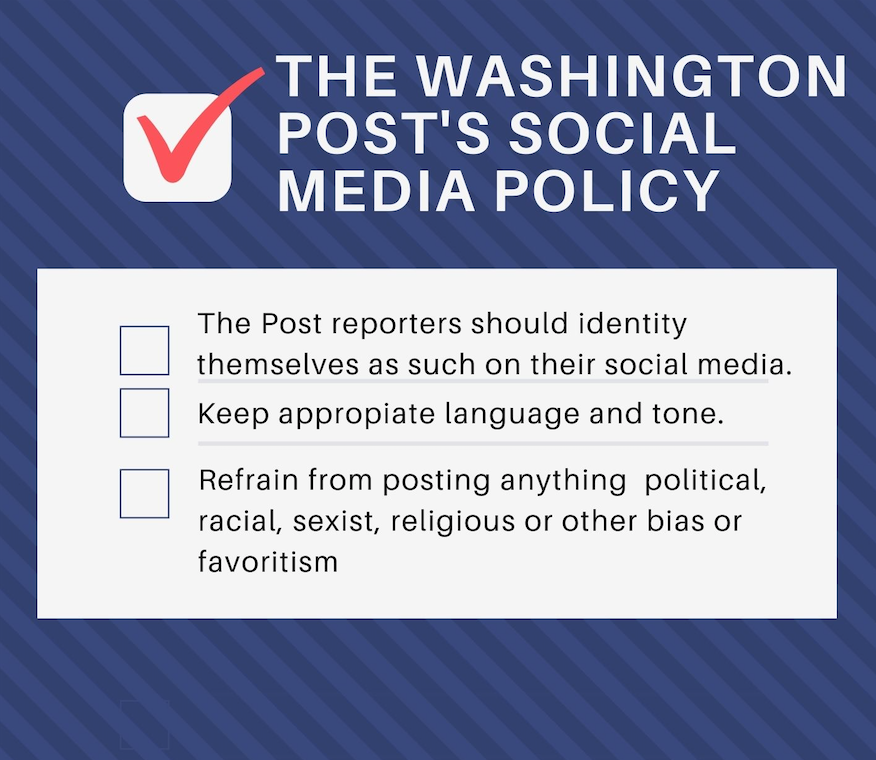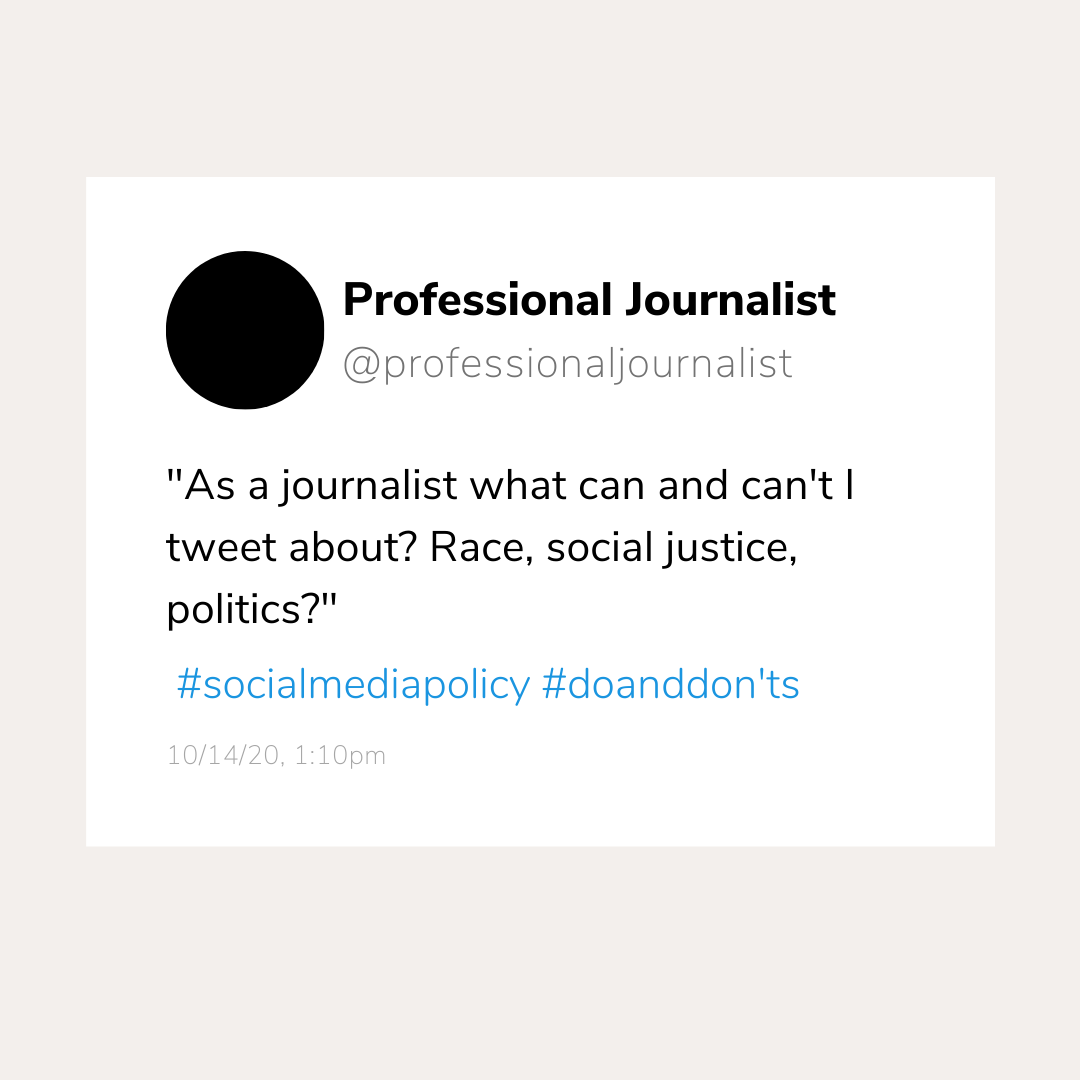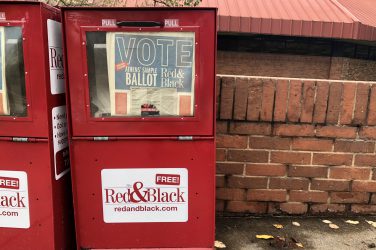Kate Bellows, reporter for The Island Packet, said when it comes to posting on social media, she errs on the side of caution. Keeping objectivity in mind, Bellows said she avoids posting any personal information, interests and political beliefs. As a journalist, she said maintaining a clean “unbiased” social media platform is important to her writing.
We’re always taught to keep our personal lives and opinions tucked away. It’s harder than it looks,” Bellows said. “I try to remain neutral, but I won’t keep quiet on human rights issues.”
Many journalists are debating how they limit themselves on social media in order to follow their newsroom and industry social media policies. While some journalists refrain from posting any personal views or interests, others make an exception for human rights and social justice movements. Grady Newsource spoke to four journalists about their usage and boundaries on social media.
Last summer amid the Black Lives Matter Movement and protests across the state, Bellows said she was vocal about supporting the movement and speaking out against deaths in the Black community. She said although journalists refrain from any political content, she saw the protests as a “human rights” issue. As a Latina woman, Bellows said she will not ignore issues pertaining to her own community or other Black Indigenous People Of Color communities. She said speaking on rights and her identity shouldn’t be labeled as “biased.”
She went on to state, however, that the concept of objectivity and biased posts is a “complex, difficult” subject in the industry.
“Who even truly knows what being objective is. No journalist could ever fully be objective; we all come from distinct backgrounds,” Bellows said.
Max Cohen, a journalist set to be a Bloomberg Business summer fellow, said journalists should be allowed to post about their identity and human rights issues such as Black Lives Matter and Asian hate crimes. However, he said he would personally choose to avoid posting any advocacy, political or social movement content. Cohen, who wants to pursue a career in political reporting, said he worries any tweet supporting a specific cause or organization could later affect his career or how his sources view him.
Cohen said before reposting an article or even liking a tweet, he ensures it’s a non-partisan publication or topic. In some cases, he will also post an article or political figure from both the Democratic and Republican parties.
“I don’t ever want what I post randomly or without thinking to come back and show an employer or source that I’m biased or wasn’t being objective,” Cohen said.
In January, The New York Times came under fire after terminating a freelance editor, Lauren Wolfe, for tweeting she had “chills” after watching Joe Biden’s plane land as he arrived for the inauguration. This sparked a debate from hundreds of journalists on Twitter about the reasoning behind the termination and whether Wolfe’s tweet was biased. Since her termination, Wolfe has created her own platform to publish content and her perspectives called, “Chills.” She’s published the newsletter using Substack, a website where writers and bloggers can create and share their own newsletters.
Katie Halper, host of The Katie Halper Show, stated her support for Lauren Wolfe and said Glenn Greenwald, author and columnist, didn’t play a part in her termination.
It’s not that deep. Lauren Wolfe should not have been fired. AND Glenn Greenwsld is not to blame.
— Katie Halper is a Jew For #CeasefireNow (@kthalps) January 25, 2021
However, after viewing Greenwald’s tweets directed at Wolfe, several people on Twitter said Greenwald was involved in creating “outrage” that led to her unemployment.
If you're in the national press and will be on TV at any point today and being to feel the need to weep joyously, just hold it in until you find a private place. Nobody is expecting any adversarial coverage over the next 4 years, but it's just a matter of personal dignity. pic.twitter.com/FNKcFRPF56
— Glenn Greenwald (@ggreenwald) January 20, 2021
https://twitter.com/ConceptualSaeen/status/1353380176420339713?s=20
The majority of media publications obtain a social media policy featuring rules on what can’t and can be posted, created and used on social media platforms. The Washington Post has an extensive policy listing that “all Washington Post journalists relinquish some of the personal privileges of private citizens.”
The policy explains that anything posted by a journalist on their personal platforms can be viewed by readers just as a byline on an article. Post journalists must refrain from “from writing, tweeting or posting anything—including photographs or video—that could be perceived as reflecting political, racial, sexist, religious or other bias or favoritism that could be used to tarnish our journalistic credibility.”

The same rule applies to following any organizations or people on social platforms as well. If a Post journalist would like to post anything related to advocacy or “special interests,” they must run it by their supervisor or editor.
In order to separate her professional and personal life, Lauren Gorla, senior editor for the Ledger Enquirer said she has a private, personal Instagram account. On Twitter, Gorla will occasionally post about her emotions, small jokes or anecdotes. However, the majority of her tweets are retweeting colleagues or nonpartisan articles she enjoys.
me: wow I feel miserable this week, what could it be
*looks around at the never ending news cycle*
still me: guess we’ll never know
— Lauren Gorla (@LaurenGorla) April 7, 2021
Gorla, who said she considers herself an expressive person, uses her private Instagram account to display more of her personal life. Although she doesn’t want current and future employers to view any “selfies” or personal stories and beliefs, she enjoys having a private outlet to do so.
“As journalists we are expected to hide our beliefs and life all the time,” Gorla said. “So my Instagram is my private way of expressing my likes, views and selfies without all my colleagues and publications knowing.”
In the last five years, Adriana Lacy, senior associate for audience and growth at Axios, said she’s seen journalists’ usage of social media grow “tremendously.” Lacy said when a journalist is actively promoting their articles and their publications articles, it’s a huge boost for page views and reader engagement. However, Lacy has also seen the difficult balance between posting on social media and maintaining an objective image.
Lacy said objectivity is a complicated topic but argues just because a journalist shares their opinion on social media, it doesn’t make them biased.
“I think that all journalists bring biases to their reporting, but what really should be kind of apparent as the gold standard is fairness and being able to accurately report out a story despite biases,” Lacy said.
On her own social media, Lacy said it’s important her tweets and content feel authentic to her followers. She refrains from posting about any political parties or activities but said posting about injustices and social movements is different. If there’s a post about an organization or source she may cover or has covered, she won’t tweet about them. However, Lacy said supporting social movements ultimately shouldn’t be seen as biased.
“I’m going to be vocal about injustices and social movements; it’s important and a right,” Lacy said. “I’m careful about what I post on social media, but that alone shouldn’t be seen as objective material.”
Gabriela Miranda is a senior majoring in journalism in the Grady College of Journalism and Mass Communication at the University of Georgia.








Show Comments (1)